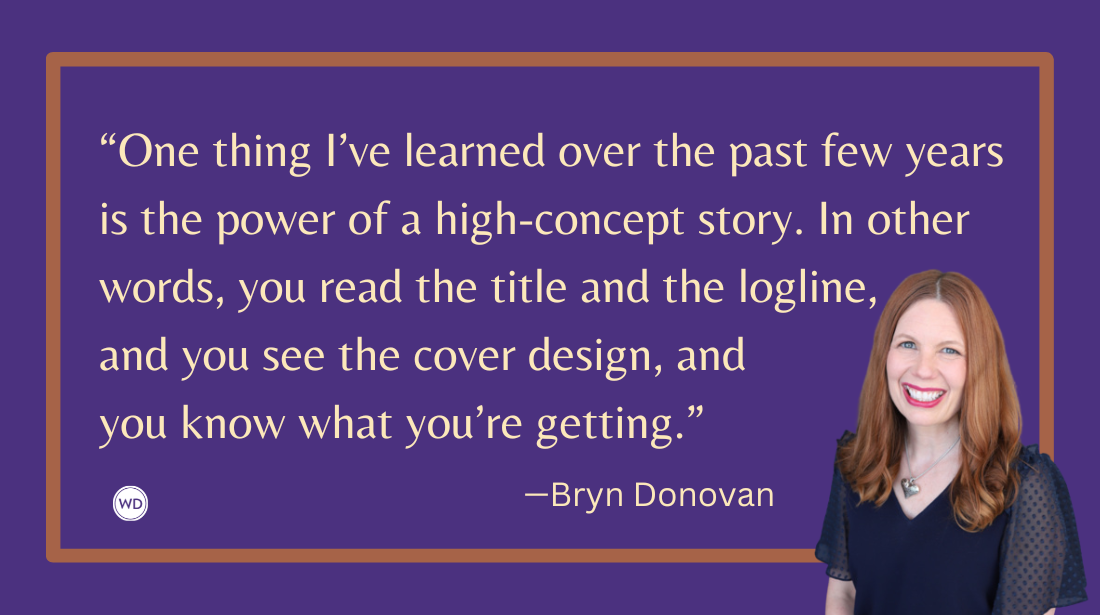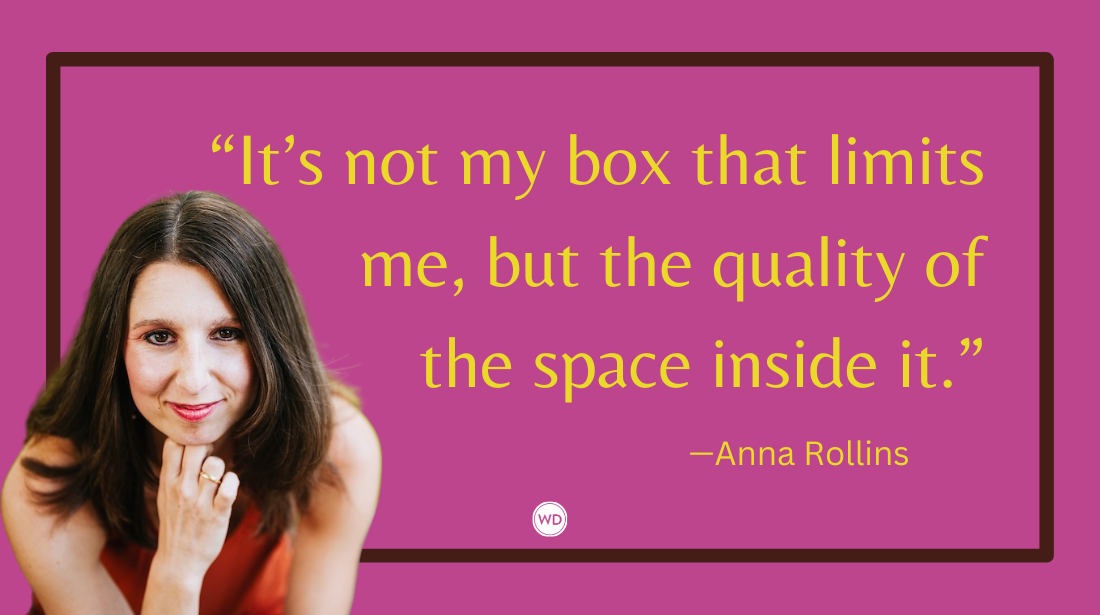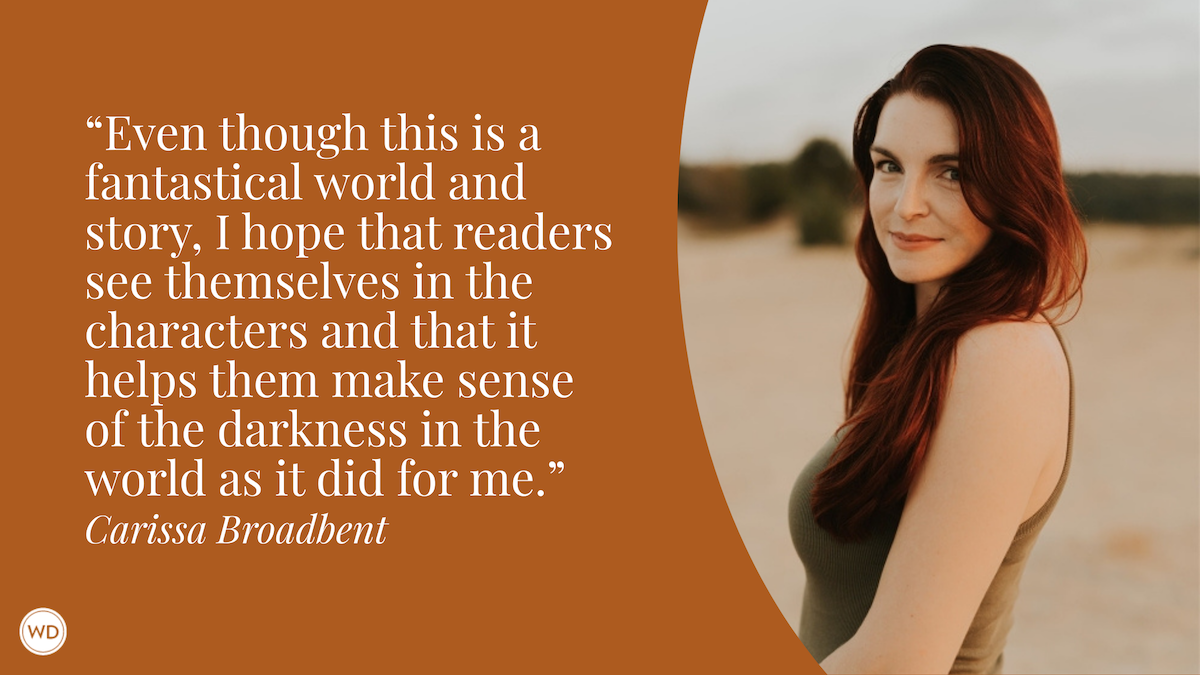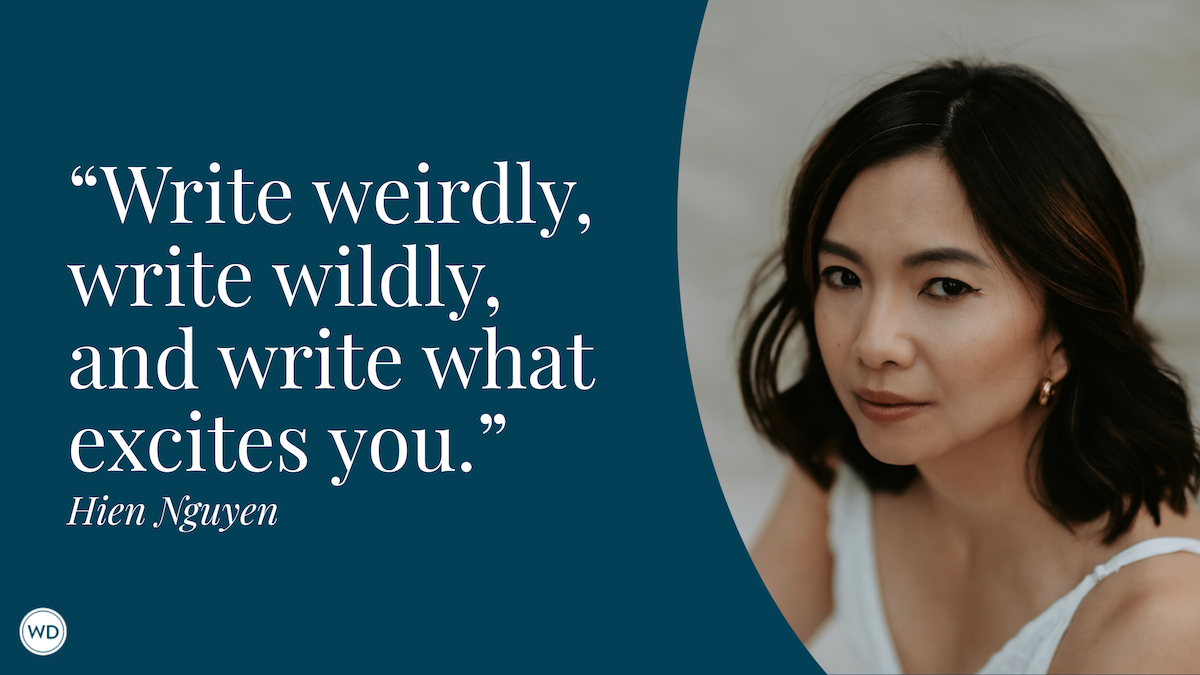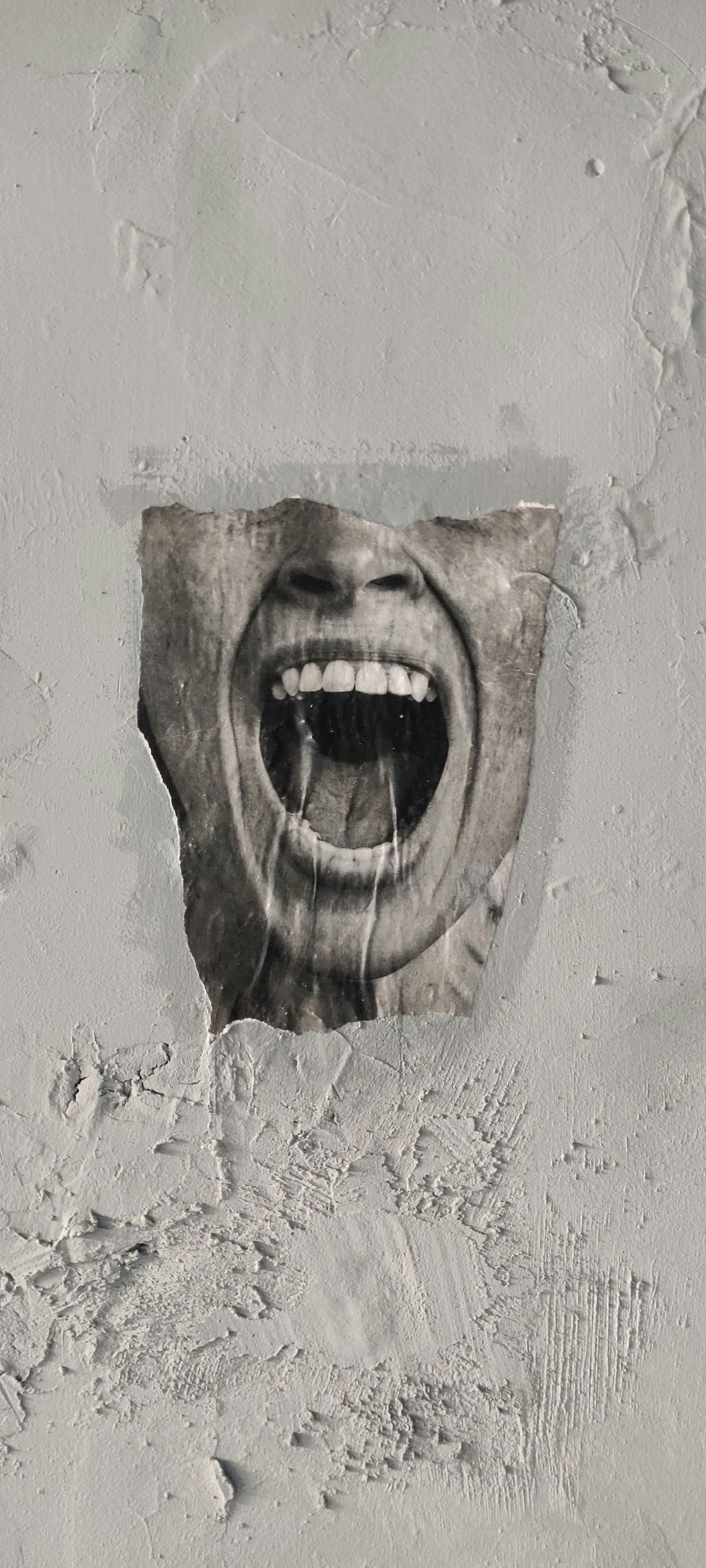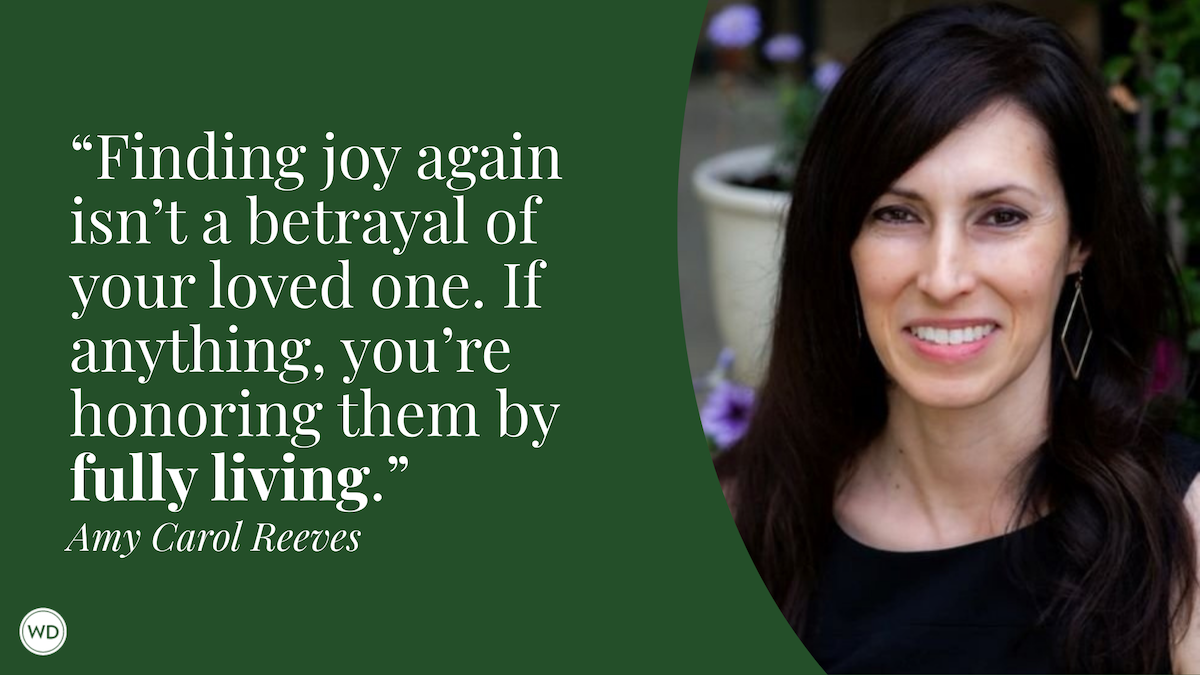It’s Never Too Late: On Becoming a Writer at 50
Award-winning author Rebecca Foust shares why it’s never too late to become a successful writer and how you can get started now regardless of where you are in your writing journey.
The year I turned 20 I sat down and made out my bucket list, jotting down the decade birthdays—30th, 40th, 50th, and so on—and beneath each entry what I hoped to have accomplished by that date. Longevity not being a strong family trait, I figured I had maybe five decades to make my life’s dreams come true. 50 years to fall in love, travel the world, fly on a trapeze, take ballroom dance lessons and and learn how to snowboard. 50 years to finish school, build a career, pay off student loans, get married, have kids, achieve financial security, and do something to make the world a better place. And, near the top of each of the five lists: 50 years to square up the person I was on the outside with the one I felt like on the inside, which for me meant somehow becoming a writer.
I’ve always been a passionate reader—and scribbler—of words. In grade school, it was stories and poems in the cloakroom at lunch, penned in response to prompts set out by my teacher, Miss Beck. In Junior High it was an underground newspaper clandestinely cranked out by mimeograph, a purple-smudged radical screed my boyfriend and I called The Insider. In high school, it was dark poems and angry editorials for The H-burger. In college I majored in English with a minor in poetry, getting my first deep exposure to the wonderful literature of the world. But the one creative writing class I took did not go well and when the teacher sneered at my jilted-lover poem, I joined in the laughter to save face. That would be my last writing class for the next 20 years, but I was still determined to write, and I made a practice of getting down something new—even if just one new word—every day, on matchbooks, bar napkins, and index cards scrupulously dated and filed away. I loved writing papers for my English classes but kept my poems and stories to myself. In law school I learned critical thinking and how to construct an argument and for a few years convinced myself that it was OK, at least I was writing something.
I practiced law for ten years, but after my third child was born and the first diagnosed with Autism, I quit full time work, spending time instead on advocacy and organization for students with learning challenges. I wrote letters to the school board, petitions, and articles for PTA newsletters. And still scribbled on notecards, backs of envelopes, and in a few of those marbleized-cover notebooks. While and after my mother battled lung cancer, I filled a whole notebook with poems, and that inspired me to sign up for a poetry workshop at a college across the street from where my kids went to school. This time the teacher was gentle and supportive, with an infectious delight in reading, writing and teaching poetry. When I showed him my work, he encourage me to “send out” and mentioned a few names of what I now know were small print journals. But at that time I’d never seen or heard about such things and, embarrassed by my ignorance, did not ask what he meant.
For a few years, I wrote copy for the brochure that accompanied our local school’s annual Garden Tour fundraiser, laboring over those little essays and feeling a stirring of something absent from writing briefs or letters to the school board. When I came across those essays later, reprinted without my permission or byline in a glossy garden magazine, all I felt was—flattered. I had, by then, stopped seeing any possibility of myself as a “real” writer.
I did not think about my bucket list again until 2006, the year I turned 49. No birthday had troubled me before, but 50 loomed momentous, so I dug up the list and had a look. Some goals had been reached: graduation from college and law school, check. Full-time practice until my loans were paid off, check. Married, had kids, check. I felt good about the volunteer community work. My husband and I owned the house we lived in, something my parents never managed. And along the way I’d enjoyed some travel, became briefly and modestly proficient on the Spanish Rope and stationary trap in a circus camp attended one summer with my son, and also a became a pretty good snowboarder.
The plan I envisioned it in my twenties was to cut back to part time work when my kids were born and to use all that freed-up time (ha!) to work on my writing. But here I was, almost 50 without having taken so much as the first step toward the one goal that in some form or another appeared near the top in each decade’s list. Okay, I thought. Time to get started.
I signed up for a “Life into Literature” class that met two hours on Friday nights for three months at Book Passage, my local bookstore. In this memoir-oriented class, fifteen women who looked a lot like me—middle-aged and suburban—were guided by the wonderful Linda Watanabe McFerrin into writing short essays about our lives, loves, joys, and griefs. Assigned weekly prompts and instructed to keep a real journal, I made my entries at night, working in my walk-in closet since it was the most soundproof and private space in house filled with teenagers. My son with Aspergers was having a rotten time at school, and the writing brought tremendous relief, allowing me to express what I wanted to but could not say to those bullying kids and the universe that had created them.
My first efforts were disappointing and did not elicit much response from my classmates. I had big ideas and big feelings that did not come across on the page. But that changed the week I read, instead of an essay, a poem written for my mother. After I quavered my way through “Mom’s Canoe,” the room was silent, the kind of silence that means you’ve been heard. From then on I brought only poems to class, and I began breaking the lines in my journal writing.
We didn’t talk much about publication at first, but over time most of my classmates confessed hope of sharing their work in this way. I was learning about the existence of small print journals, chapbooks, and slim, soft-cover volumes of poetry. But I didn’t know how to get work published in any of those places and in fact, could not even envision it. When I was in college and actively reading poetry, the Norton Anthology of English Literature by Women didn’t exist, and Maya Angelou had not yet read for President Clinton’s inauguration.
I began browsing libraries and bookstores, amazed at how much had happened in poetry since my college years. I bought my first chapbook, Seeking Center by local poet Joan Gelfand, and it was a revelation: a real, published poet—who was a woman! My own age! And, writing about the same everyday-life things that made their way into my own work. Before that, it had not occurred to me that anyone outside of the class might be interested in what I was writing about. I began to seek out and read women poets: Sharon Olds, Mary Oliver, Jane Hirshfield, Susan Griffin, Molly Peacock and others.
On the last day of class, our teacher brought in Xerox copies of the application form for the 75th Annual Writer’s Digest Contest and walked the class through how to make a submission. “This will be your final assignment,” she said.
I bundled up “Mom’s Canoe” along with four other poems and sent them off, telling myself it was just part of the discipline to learn the catechism of submission and trying to heed Isak Dineson’s advice to write every day with hope but without specific expectation. My first notebook filled up, and I started the next one, and the next.
When I got the call from Writer’s Digest, I was getting close to 50 years old, living a life that had severely contracted in the years since I’d quit working full time. As the mother of three kids, one with significant challenges, I was needed at home, and all my advocacy work and writing was done during school hours. I rarely went out at night and never traveled anywhere on my own. Even just attending a weekly class was something I had to fight for and fiercely protect. I’d found in my class an audience who liked my poems. But would anyone else care? Was it worth the commitment that—as I was just beginning to apprehend—serious writing would demand? Maybe that first writing teacher was right, and I lacked the talent to produce work that mattered. Like many women who leave careers to stay home and raise kids, my confidence was at a low ebb.
I think (but honestly don’t remember) it came from Brian Klems, that phone call telling me “Mom’s Canoe” had taken first place among more than 3,400 entries. “You won,” the voice said, but what I heard was something different. I heard Yes. You were meant to do this. I remember being flooded with relief and saying over and over, it’s real. Not just a pipe dream or hobby. Nothing that’s happened with my writing since—and a number of wonderful things have happened—has hit me again with the positive force of that phone call. I know it’s shallow to require validation from others, and a thousand rejections later have learned that a writer must cultivate conviction from the inside out. But at that moment in my life I needed a big yes from the universe, and I got it from the contest win.
My writing teacher and classmates made a big fuss, especially after it came out that another student–Jasmin Darznik—also had taken first place in the essay category of the contest. Jasmin would go on to finish her PhD, publish a New York Times bestselling memoir The Good Daughter, and earn a tenure-track college teaching job, but on that day she was nearly as new to publication as I, and we were both giddy with joy. The bookstore threw a party for us, and we read our work into a microphone set up in a room full of smiling people offering us toasts. In due course, the $1000 check arrived in the mail along with the anthology where I saw my writing in print for the very first time.
The flint was struck, and after a 35-year hiatus in my writing, I was back in, flaring with hope and plans. I began a regular submission practice, shooting high and, to my enduring surprise, sometimes hitting the mark. The year I actually turned 50, one of my notebooks became Dark Card and won the 2007 Robert Philips Poetry Chapbook Prize. The poems written for my mother went into Mom’s Canoe and won the Phillips Prize again the next year. I enrolled in Warren Wilson’s low residency program, graduating in 2010 with an MFA in poetry and a thesis (All That Gorgeous Pitiless Song) that won the Many Mountains Moving Book prize. A collection of environmental poems written in collaboration with my friend and artist Lorna Stevens morphed out of its three-ring binder into God, Seed: Poetry & Art about the Natural World and received a Foreword Book of the Year Award in 2010.
My poems are widely published now, and I am making inroads with book reviews, essays and short fiction. 2014 was a watershed year, beginning in January with a residency at Vermont Studio Center, followed by the summer as the Dartmouth Poet in Residence at the Frost Place, then by an October residency at MacDowell. An essay called “Venn Diagrams” won the 2014 Constance Rooke Award for Creative Nonfiction, and two poems were featured on Poetry Daily. Shortly after coming home from MacDowell (and just before the Giants won the World Series—what a great week) I was notified that my book-length sequence of Sonnets, Paradise Drive, had won the Press 53 Award for Poetry and would be published in April 2015.
Which brings me to one last story. The book I remember best from grad school, assigned to me by Heather McHugh, is The Whole Truth by James Cummins. It’s a brilliant collection of wickedly funny sestinas populated with characters from the Perry Mason series along with a few Iowa workshop types and one hilarious jive-talking, joint-sucking housefly. I admired Cummins’s finesse and apparent ease with a challenging form. But I also marveled his conjuring of character, dialog, and plot; the book was alive, making me laugh till my sides hurt and then after the knife was slipped in, making me ache. In his blending of high with low style and comedy with tragedy, Cummins seemed like a modern Shakespeare. I wrote three annotations on The Whole Truth and bought copies for my friends. And it was shortly after reading it that I wrote, in one heady insomniac rush, more than 30 linked sonnets that are the core of Paradise Drive. That was in 2008. Fast forward to the summer of 2011 to a summer workshop with Molly Peacock. The subject of sestinas came up, and I mentioned this wonderful book I’d loved so much. “Jim’s my friend!” Molly said. I had all Mr. Cummins’s books by then and wanted to get them signed, so Molly gave me his contact information.
We exchanged a few emails, and Mr. Cummins eventually figured out why my name sounded familiar—it turned out, incredibly, that he’d been the first-round judge in the Writer’s Digest contest “Mom’s Canoe” had won. More than five years had passed, but he remembered not just the name of my poem but also a few of its lines. How wonderful, I remember thinking, that you can be introduced to someone simply by reading his or her work. We fell out of touch, but when Paradise Drive won the Press 53 Award last fall, I wrote to Mr. Cummins tell him the news. That the author of work so directly inspirational for my own book was willing to read it was a wonderful thing. But that he liked it enough to write an endorsement—well, what could be better than that?
Sometimes people ask if I regret “wasting” all those decades before I learned to believe in my writing and take it seriously. No, I tell them, I was gestating, amassing experience and material I tap into when writing my poems today. Things happened as and when they were meant to, I think. But without that early validation from Writer’s Digest, happening through the intervention of an author I still haven’t met but whose work showed me a poetry as alive and authentic as it was accomplished, I sometimes wonder if I would have kept going. In any event, it happened; except maybe for the ballroom dancing lessons, I actually did get caught up on the bucket list sketched out by my ambitious 20-year-old self. Looking toward 60 now, I’m full of plans for more poems, books, readings, and teaching—all of it. I know I still have much to learn but instead of feeling crippled by self-doubt, I relish the challenge posed by an art that can never be fully mastered. I may limp a little now and then, but mostly I’m moving forward, feeling grateful and hopeful, and very excited to see what will come next.
*****
Discover how the seven core competencies of storytelling—concept, character, voice, plot, theme, scene construction, and style—combine to create compelling narrative.
Rebecca Foust was the 2014 Dartmouth Poet in Residence and is the recipient of fellowships from the Frost Place and the MacDowell Colony. Her fifth book, Paradise Drive, won the 2015 Press 53 Award for Poetry.




